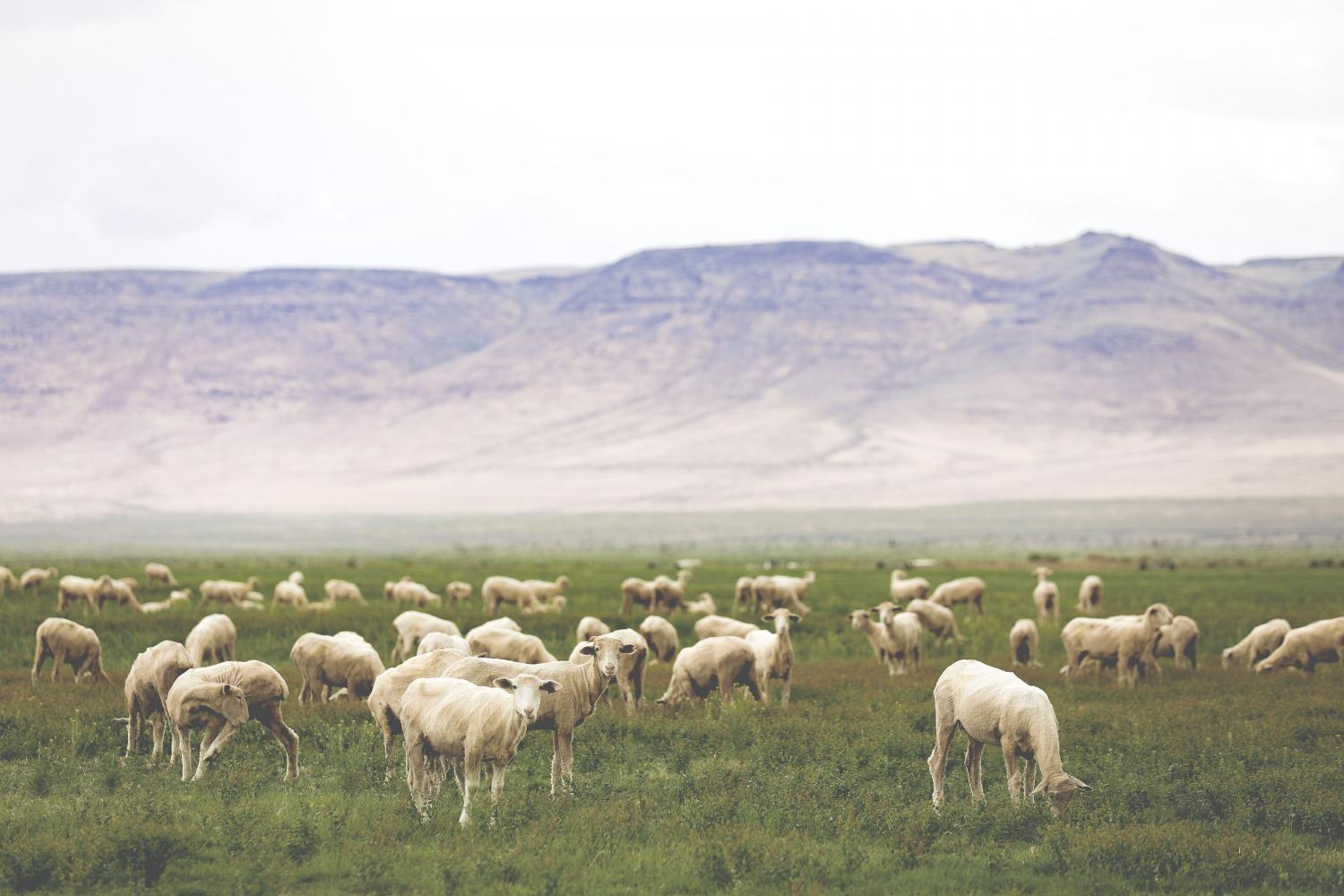
In 2016, the consulting firm McKinsey said one of the keys to succeeding in tomorrow's fashion market would be sustainability, asserting that consumers will “expect ecologically unobjectionable fabrics, a conservation-minded use of resources, reduced emission of pollutants, and greater social commitment.”
As Huffington Post has reported, sustainability has become the next fashionable trend, but despite growing interest from consumers, the industry still has a long way to go. Sustainable Brands reported earlier this year that the apparel industry has one of the largest carbon footprints globally. More companies, however, are stepping up their game.
For example, the outdoor clothing and equipment brand The North Face hopes its commitment to expanding the range of the label’s Cali Wool collection this year “will help raise awareness of how consumers can support climate action by purchasing products made with regenerative methods.” Cali Wool is sustainably produced wool that the company introduced last year.
In order to produce this range of clothing, The North Face has partnered with Bare Ranch in California, whose regenerative agricultural practices are expected to sequester 4,000 metric tons of carbon a year, or the equivalent of removing 800 cars per year from the roads. Bare Ranch in turn has worked with Fibershed, a non-profit that “develops regional and regenerative fiber systems on behalf of independent working producers.”
The basis of this system is carbon farming, the process by which carbon is sequestered back into the soil. This system uses techniques such as composting, planting cover crops and trees and restoring creeks on ranch land. As a result, while sheep graze on the land, overall soil health is improved, and the result is what Bare Ranch calls “Climate Beneficial” wool.
Sustainable ranching is one benefit of producing this line of clothing, while another feature is to produce a completely regional product - further limiting this apparel’s carbon impact. Instead of shipping the fibers off to an overseas location like China, The North Face’s Cali Wool products are manufactured in the USA.
This line of apparel is not a low cost leader, but as The North Face told TriplePundit via email, “the price of the Cali Wool collection - beanie, scarf and jacket - reflects the high-quality, premium USA Rambouillet wool and local manufacturing. All three Cali Wool products are made in the USA and the fabric for the jacket, in particular, is woven at American Woolen Company, a Connecticut-based fabric mill that makes specialty, high-quality fabric.”
This year’s Cali Wool range expands upon its first item, the beanie, which The North Face launched in 2017. By expanding the product range this year, The North Face is purchasing five times as much Climate Beneficial wool by volume compared to last year.
The product retails at a slightly higher price than those made from conventionally sourced fibers. As the aforementioned McKinsey report concluded, while consumers are demanding products that are sustainably sourced, “only the fewest customers are willing to pay more for these greener products.” So, will this be a problem for The North Face?
It appears not. The Cali Wool beanie is ten dollars more expensive than a similar merino wool product on the company’s website, but so the brand's customers are prepared to pay the price premium. The North Face told us via email that the Cali Wool product range for this year was expanded in part because of consumer demand, having sold out twice through their online store already.
It is encouraging to see responsibly sourced natural fibers finding their way back into the apparel market. From the startup footwear company using wool and tree fibers 3p covered last month, to large established companies like The North Face, moving away from synthetic materials will help provide consumers with more choices of responsibly- and sustainably-made apparel.
Image credit:/The North Face

Phil Covington holds an MBA in Sustainable Management from Presidio Graduate School. In the past, he spent 16 years in the freight transportation and logistics industry. Today, Phil's writing focuses on transportation, forestry, technology and matters of sustainability in business.














